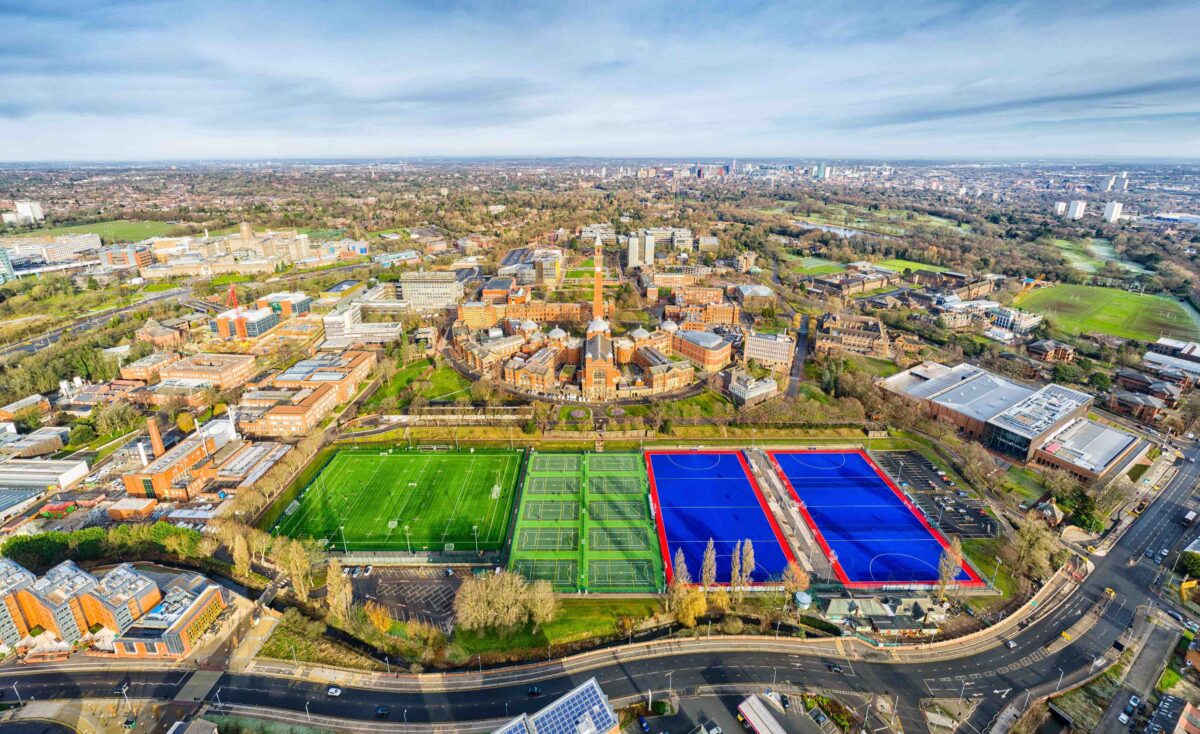COP27: an opportunity for us to springboard Green Careers

This time last year, the world was looking to Glasgow as the UK presidency of COP26 wrapped up. Arguably COP26 saw more recognition of the role of skills and education in the negotiations than there had ever been before. The Government had recently launched its Net Zero Strategy, which explicitly outlines the role of learning and skills. This was soon followed by the flagship Climate Change and Sustainability Strategy from the Department for Education, a first for the UK, which set out an ambitious vision for the UK to have a world leading sustainability education system by 2030.
Now, world leaders, negotiators, experts and activists are coming to the end of COP27 in Sharm El-Sheikh. This year, there’s been less of a discussion about education and more about loss and damages – how do we ensure that those, largely high income countries who’ve been responsible for the climate emergency, support those who haven’t yet contributed, yet bear the brunt of the impact? It’s yet another inconvenient truth that those who are most impacted by climate change whether that be through crop damage, natural disaster or water scarcity are amongst the poorest in the world. Climate justice needs to be at the heart of our response to climate change.
Each COP has a different lens and focus (learn more about COPs here), so it’s perhaps not a surprise that a theme that was prominent last year, has been less visible in the proceedings this time around. But in the Green and Blue zones of the event outside of formal negotiations, NGOs, businesses, charities, youth groups and others have convened discussions and built connections that will shift education systems to better meet sustainability needs. One area of global interest is green jobs.
Spotlighting Green Careers
It was by design that the UK used the press coverage and timing of COP to highlight the inaugural national Green Careers Week last week, which was delivered as a non-profit Green Education and Careers partnership between National Careers Week CIC, STEM Learning and the Department for Education.
The initiative is very welcome. Last year in their recommendations to government, industry and the education sector, the Green Jobs Taskforce cited the need to build pathways into green careers for people from all backgrounds.
The FE and Training Sector has a particularly impactful role to play in the green careers space. Firstly, the reach of the sector is significant. Imagine if the 5 million learners that study in our training providers, adult education services and colleges all had the knowledge, skills and behaviours they needed to respond and contribute positively to sustainability in their lives and careers. It would be transformational. Secondly, the vocational and technical focus of our sector means it’s the natural place to develop many of the technical skills we’re going to need to develop and scale up sustainable technologies and practices. We also serve every community in the country. We need to ensure that those currently working in so called ‘sunset jobs’ which are likely to become obsolete can retrain and reskill into jobs that align with the sustainability goals we’ve committed to. Finally, we need to make sure that jobs that support our sustainability are accessible and inclusive – for everyone.
Reaching far and wide
The DfE Climate Change and Sustainability Strategy recognises that “green jobs will not be niche”. Yes, we need people in roles dedicated to the sustainability transition – those who work in sustainable food systems, agriculture, biodiversity, retrofit and efficiency, renewable energy systems, electrification – but like the DfE, I believe that “sustainability and climate change will touch every career”. Therefore, it was fantastic to see resources that support engagement with green jobs put together in a hub for Green Careers Week that of course can be used beyond those seven days. There were resources for different audiences including learners, parents, careers advisors and educators, all of whom have a role to play in supporting the more explicit inclusion of sustainability skills into the workplace, and career and progression pathways.
Partly, this is in response to learner voice. Longitudinal data tells us that learners absolutely want to be developing attributes that enable them to navigate the sustainability agenda, and that help them contribute to sustainability and social justice through their work. The majority would rather earn less and work for an organisation that contributes positively to the world.
Educators and those leading on their organisation’s response to sustainability should also be considering their region’s approach to developing sustainability skills. The Skills Bill states that Local Skills Improvement Plans (LSIPs) will only be approved if they give due consideration to the “skills, capabilities or expertise required in relation to [the]…. UK net zero emissions target, adaptation to climate change, or meeting other environmental goals.” There’s some valuable freely available regional data from the recent PWC Green Jobs Barometer which provides benchmarks about different regions in the UK’s readiness for green jobs. Insights into national trends relating to green jobs are also available as a result of a partnership between Deloitte and the Institute of Environmental Managers and Assessors (IEMA) in their publication A Blueprint for Green Workforce Transformation.
The way forward
Numerous FE providers and practitioners are already developing and delivering education for sustainable development (ESD). Likewise various sector bodies are now progressing their work on sustainability, which will no doubt impact educators, leaders and others working in the FE and Training sector. ESD is now recognised in both the English and Scottish professional standards for educators. The Institute for Apprenticeships and Technical Education is embedding knowledge, skills and behaviours relevant to sustainability across its occupational standards. There’s a definite shift in some of the systems and frameworks that guide how our sector operates, signalling that ESD is here to stay. Green Careers Week was a great way to bring some of these issues to the fore – and if you’re not already, it’s a great prompt to start planning your organisation’s approach to green jobs.













Responses